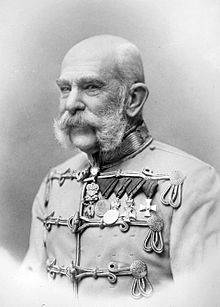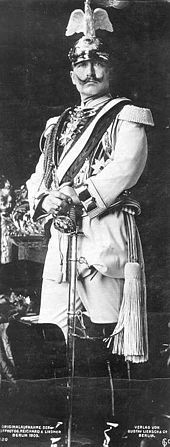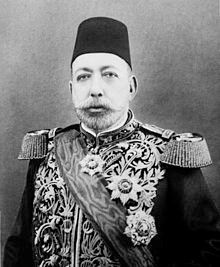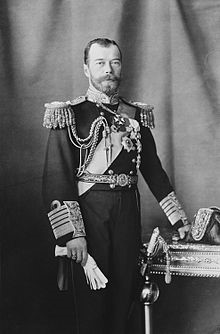Europe was evolving rapidly by 1914. Technology was ramping up and medieval political dynasties, some with pretensions of inheritance to the ancient Roman Empire, were fading. The whole arrangement could have unfolded peacefully and profitably into a rapturous future, but because of failures of every stripe, Europe instead got a bloodbath.
Invention had recently changed Western Civilization faster than anyone could have imagined. Rickety, wooden ships people had been sailing on - basically large versions of the caravels known to Columbus - were replaced by safe, modern steamships like the Titanic. Lethargic, clip-clop horse carts were supplanted by zippy railroads, and increasingly by automobiles as well. Balloons levitated in place as airplanes, figuratively and literally, flew circles around them. All these marvels were being jack hammered together in Western cities which saw populations grow to over one million, a thing unheard of since the time of ancient Rome. Yet, most of it was still being governed by dynastic, quasi-feudal monarchs with inexplicable penchants for feathery hats, crimson sashes, broad epaulets and military medals they never earned.
Democracy was neither a new idea, nor one foreign to Europe. Still, despite the fact that Emperor Franz Joseph I of Austria-Hungary never stood for election, he imagined a popular mandate to pursue an agenda of near pathological meddling in the Balkans. His counterpart in Germany, the equally-unelected Kaiser Wilhelm II, proved so reactionary that he fired famed Chancellor "Blood and Iron" von Bismarck for not being nationalistic enough. The just-as-unelected Tsar Nicholas II of Russia, who had only abandoned serfdom a few decades before, effectively delegated day-to-day decision making to sex-crazed "monk" named Rasputin. And the profoundly unelected Sultan Mehmed V, of the sputtering Ottoman Empire, by now served as little more than a figurehead to a government perpetually addicted to betting the wrong horse.
The whole continent of Europe, between the time of Napoleon's exile until almost exactly one hundred years later in 1914, had seen a general peace and a height of power. France still possessed wide swaths of colonies in Africa and Asia, but no longer "gave Europe a cold every time it sneezed." The Ottoman "Sick Man of Europe" Empire faded in the Balkans as the bordering Empires of Russia and Austria-Hungary subsidized small wars to get their "scalpels in" (Europeans seemed to like virus analogies). Italy and Germany laced together nations out of principalities and city-states, the latter as inheritor of the old Holy Roman Empire and fearsome new power on the continent. The United States, once imagined to be an agrarian backwater, emerged from its own Civil War with a huge army and modern weapons (but as yet an isolationist view). Great Britain still held a string of colonies in places like Canada, Australia and New Zealand, and with a first-rate Navy, became a corner-stone of this so-called "Pax Britannica." The whole arrangement was, momentarily setting aside the moral disaster of colonialism, another European pretension to ancient Roman times.i
After an entire century of general peace, World War I erupted over the course of a few days in 1914 with all the sobriety of a pie-throwing fight. It seems the Austro-Hungarian Empire had been spoiling for a brawl with tiny Serbia and the murder of its own plumed-hat, heir-apparent by a Serb nationalist provided just the excuse. The rival Empire in the neighborhood, Russia, ostensibly brimming with concern for Orthodox Serbia, began to mobilize and this was all but seen as a declaration of war on Austria-Hungary. The German Empire, still in alliance with Austria, declared war on Russia, while France, still fuming over its losses under Napoleon III, started mobilizing against Germany. Germany declared war on France first, but instead of hitting it head on, this time charged through the back door of neutral Belgium (which, I might add, was actually trying to stay neutral). Now the British Empire, which had little regard for a far-off Balkan shoving match and no treaty obligation to France, suddenly became very jittery. Great Britain still held an archaic treaty obligation to defend Belgium's neutrality, because any hostile naval presence on the English Channel became an existential threat to itself. Britain declared war on Germany, while Austria now formally declared war on Russia. Soon after, the Ottoman Empire joined the Germans and the Austrians in declaring war on Russia, because Ottomans fighting Russians is basically just what they did. All of this painted a stripe of "Central Powers" down the middle of Europe, while Italy, which had been allied to Austria and Germany on paper, switched sides to join the opposing "Entente" countries. Since this was Europe, at the apex of colonialism, satellite states from all over the globe were soon dragged in, whether they had any real interest or not. The world was at war.ii
No words exist to fully describe the madness of static, trench warfare that ensued as the semi-feudal aristocrats used Napoleonic tactics against modern weapons. At the Battle of the Somme, to pick just one, 600,000 British and 150,000 French started off against hundreds of thousands of Germans. For one week straight beginning June 24, 1916, the British kept up the most intense bombardment known to warfare, so unthinkably loud it could be heard across the English countryside more than a hundred miles away. They assumed the barrage would cut German barbed wire barriers, annihilate underground bunkers and take out defending machine gun nests. They discovered the opposite was true, for artillery shells telegraphed the point of attack, turned barbed wire barricades - once strung in neat, predictable lines - into something like poorly packed Christmas lights and made previously smooth ground into a muddy, moonscaped mess. The British watched in horror as presumably dead Germans simply rose from deep, intact bunkers to confront them with rapid fire machine guns. In the opening hours alone the Brits suffered almost 60,000 casualties - then it got worse, much worse.
To grasp how, consider some random facts from the front. The battle, begun in part to divert men away from the meat grinder of Verdun, ended up dwarfing that heinous fight, while months passed and thousands died most every day. The British introduced tanks, which promised to cross trenches and barbed wire, but early models were ponderously slow, prone to breakdown and targeting by German heavy guns. The British Prime Minister's son was killed and an obscure "German" corporal named Adolf Hitler was severely wounded. Historians have come up with all sorts of casualty figures - I have heard 420,000 British, 205,000 French and 500,000 Germans by then, which seems as reasonable as any (over a million men by any count). The battle ended on November 18th with the allies short of Bapaume, a town their plan called to take on the first day. They reached seven miles at their furthest penetration, which mathematicians calculate at more than one man down per inch gained - the lines had hardly changed. iii
By February 1917, the once-mighty Russian Empire degenerated into chaos. An offensive it launched the prior summer, which first seemed unstoppable, ground to a Titanic-meets-iceberg halt. Czar Nicholas II, whose rule had become quickly and completely untenable, was forced to abdicate and with him went the entire babbling delusion of a monarchy related to the ancient Roman Empire. A weak, provisional Democratic government popped up in his place and proved nearly as incapable, but swore to continue fighting nonetheless.
Appearances were deceiving - on both sides of the battlefield - for just when the German Empire seemed to win in the East, it marched toward exhaustion in the West. In hindsight, it should have taken the long view and preferred a more stable Russia with which to negotiate surrender on favorable terms. Instead, Germany made what seems now the most unbelievably poor and short sighted decision possible for its own interests. It railroaded a largely unknown and perpetually-exiled agitator named Vladimir Lenin (1870 - 1924) along with some of his friends from the Swiss Border, across German territory and up to St. Petersburg. The German Empire, to the extent logic allowed, was gambling that Lenin would stir up the Communists there and in so doing, destabilize Russia even further. It held little respect for the strange little gnat-cloud of furor and once the Russian people learned their greatest enemy had chauffeured him home - it was imagined - he would not have great clout there, either. It was hoped that Lenin would help the extremists get the better of the moderates and thus inflict even more disarray upon Russia.
Mission accomplished.
The former Russian Empire fractured into many internal armies, each one apparently at war with every other and all with less organization than of fishing bucket full of eels. Throughout the next year, in a series of moves that defy rational bookmaker abilities to calculate, the Communists under Lenin took bloody control of the country. Russia now withdrew completely from World War I, losing large patches of territory to Germany as part of the conditions - but not for long. And, the decision to smuggle Lenin across the continent and back into Russia would soon enough come back to haunt Germany to the Nth degree. Believe me.iv
Four anachronistic Empires, the Austro-Hungarian, German, Ottoman and Russian - and their ruling dynasties - disappeared with pen strokes at the end of World War I. Austria-Hungary, which had so much wanted the war, got jigsawed into a reduced Austria and a further reduced Hungary, and relieved of schools of distrustful Balkan states, hence the word "balkanization." Germany, which had been so keen on expanding the war into Russia and France, was forced to admit responsibility, cede territories, pay huge reparations and give up its Army. The net result was a shaky, putsch-prone Democracy commonly called the Weimar Republic, so plagued by hyper-inflation that housewives there literally used wheelbarrows of money to buy bread. The Ottoman Empire got mangled by the British at the Battle of Megiddo (the same place the Bible calls "Armageddon") and so Jerusalem was returned to Christian hands for the first time since the Crusades. The Ottomans watched as the British and French self-servingly sliced and diced the Middle East into states that hated one another, each ruled by a suspicious Grand Fez, which is where the Middle East remains today. The core of the Empire, the fear of the West for 1000 years, became Turkey - a modern, well respected Democracy that bridges two continents. The Russian Empire, which seemed the big loser just one year before, regained what it lost when Germany was forced to lose what it had gained. Russia now rebranded itself as the Union of Soviet Socialist Republics - the name just rolls off the tongue - and imposed a militantly expansive form of Communism. Then for no apparent reason, the Soviet Union began tragically starving roughly 30 million of its own people to death. The overall high-hat, French Field Marshall Ferdinand Foch (1851 - 1929), scoffed that the concluding Treaty of Versailles was "[a]t most, a twenty year truce." It turns out he was off by sixty five days. v
About the Author
Erik Von Norden grew up just outside New York City. He holds a B.A. in political science and a M.A. in history. Erik passed the bar exam without going to law school, and because of an anachronistic quirk in the system, ended up as an attorney. He now lives at the far end of civilization - in a house on a dirt road in the woods, miles from the nearest pavement, in a small town in northern Vermont. His Rube Goldberg contraption of a brain processes the world with an odd, well-caffeinated kind of logic. He blogs about this eccentric thinking at Theory of Irony.










SUBMIT A COMMENT